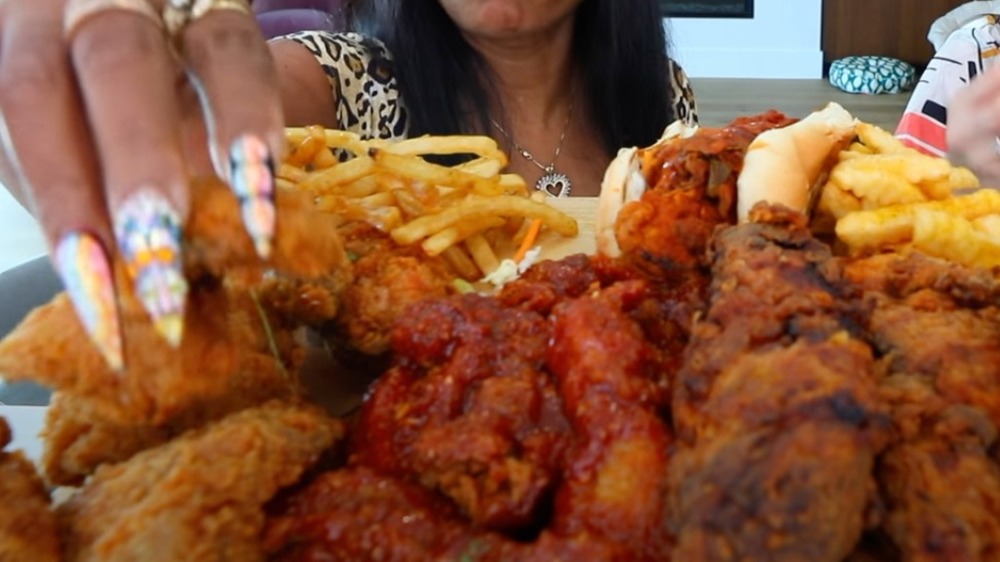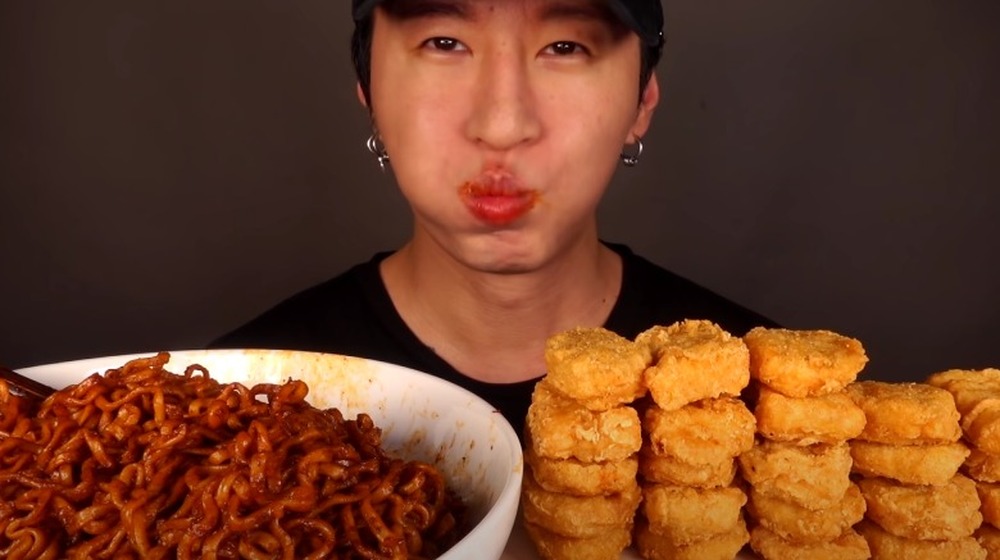The Hidden Dangers Of Mukbangs
Generally speaking, things we can do to damage our bodies are awesome. Otherwise, why bother? Smoking, drinking alcohol, eating bacon, and not exercising are all joys that make everyone feel like the leisure class. But maybe those things are played out. Enter "mukbang," the act of eating copious amounts of food in one sitting whilst chatting up a social media audience who get to be enraptured in the mukbanger's full gluttonous experience. According to Men's Health, the word, "mukbang" is a combo of the Korean words mukja, which means "let's eat," and bang song, which means "broadcast."
Mukbang originated in South Korea but has been around for about a decade, according to the BBC. Still hugely popular around Asia, the virtual phenomenon has gone global, with several American mukbangers garnering millions of YouTube subscribers, per Insider. While eating 4,000 to 10,000 yummy calories in an hour sounds delightfully painful, the real reason mukbangers do it is for the prestige.
Just kidding. It's for the money. According to Insider, successful mukbangers make in the hundreds of thousands to millions of dollars a year. Eating. On. Camera.
But all this eating to entertain food porn voyeurs isn't without dangers, both to the mukbangers and even possibly to society.
Mukbangs are bad for you, m-kay
It's easy to imagine how watching a likable person eat lots of delicious food and somehow stay remarkably thin would inspire folks to have their own feasts of shellfish, pizza and fried chicken, but doctors caution against it. According to gastroenterologist Dr. Samantha Nazareth M.D., in the U.S., where obesity is already a leading health concern, maybe videos of people eating inordinate amounts of food has a bad influence on viewers. After all, we all remember the tide-pod challenge (per a report posted on YouTube). Teens willingly ate those, and there is no way laundry detergent even tastes good. Dr. Nazareth told Men's Health, "In a country with increasing amounts of obesity, this is not the correct message to send nor is this something to try at home," she says.
The more obvious dangers though, may be to the mukbangers themselves. Many mukbangers say that the way they are able to eat so much yet stay thin is that when they're not mukbanging, they eat painstakingly light and healthy.
Dr. Andrew Bates M.D., an assistant professor of surgery in the Renaissance School of Medicine at Stony Brook University, told Men's Health that the methodology may not be sound. "It's quite a roller coaster to put your body on," he said. "Your body won't know whether you're in feast or famine mode."
Yet, the long term effects are yet to be determined. According to Dr. Bates, "We don't have the benefit of watching them for years and seeing what happens."

